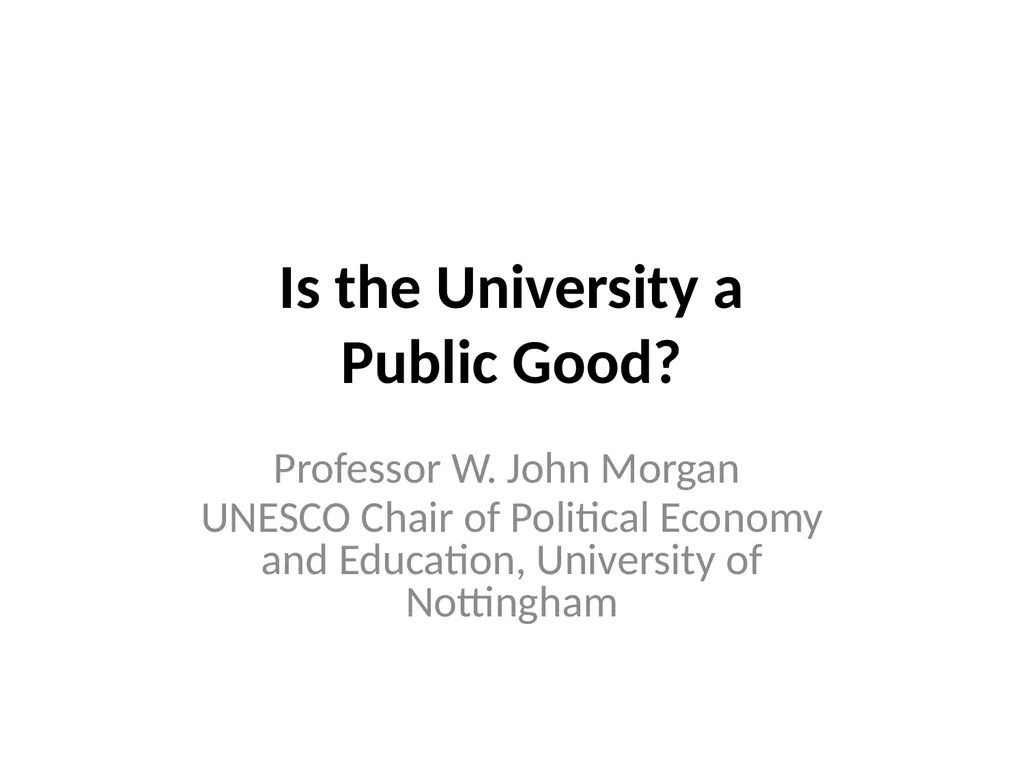
Is the University a Public Good? Professor W. John
Author: sherrill-nordquist | Published: 2025-05-29
Description: Is the University a Public Good? Professor W. John Morgan UNESCO Chair of Political Economy and Education, University of Nottingham The Idea of a University Educating Leaders for 800 years! Poster advertising the University of Oxford
Download Presentation
Download the PPT/PDF: Download
Transcript:
Loading transcript…